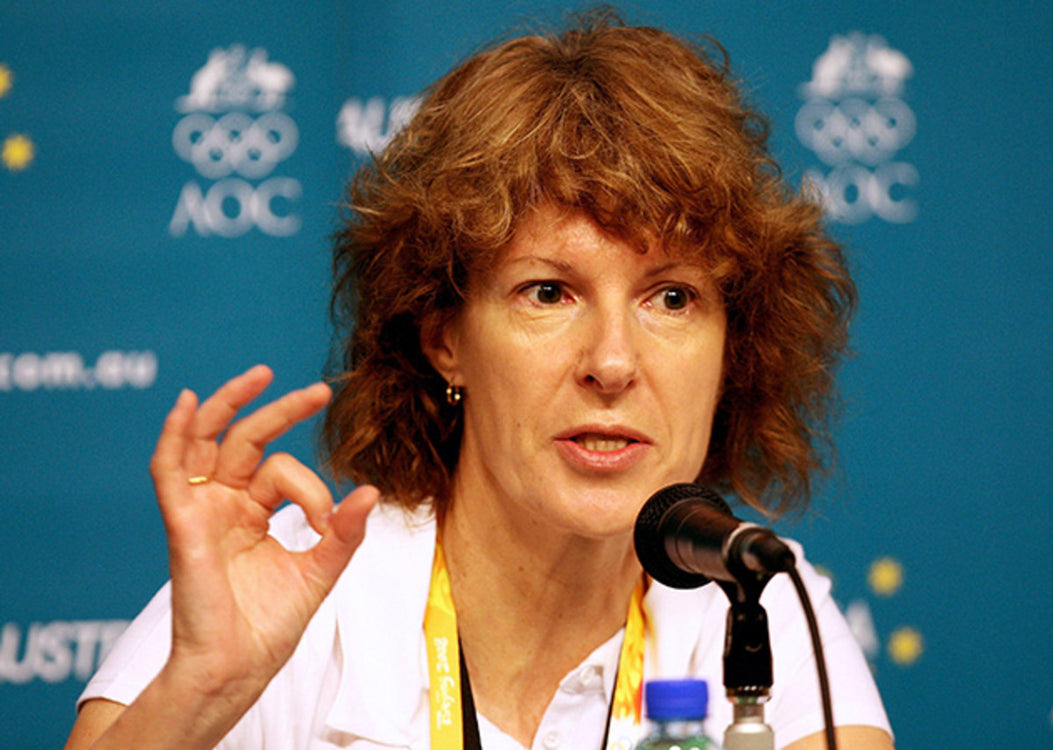
Written by Travis Mckenzie
The science and research in sports nutrition has almost entirely focused on what the muscles need, and that's all changing according to industry leader, Professor Louise Burke.
"We forget that we are whole human beings, and we've got a head on top of our muscles and that often directs the traffic in terms of our (sports) performance," stated Burke.
When Louise Burke speaks, people listen. And that was the case when I spent a morning with Burke in New York, following her participation in the New York Marathon. As a fellow Aussie, I was excited to meet her. Burke's books on sports nutrition grace bookshelves across the country and her role as Head of Sports Nutrition at the Australian Institute of Sport over the last 30 years has solidified her reputation as nothing short of legendary. Her research on carbohydrate fueling and utilization is game-changing and has resulted in multiple Olympic medals. In fact, any athlete with goals to increase their performance can benefit from Burke's findings.
I took the opportunity to ask her about a fascinating and quickly evolving field of sports nutrition: carb-rinsing. Most of us recognize that when we're feeling a bit tired and flat during a race or a training session, we can consume carbohydrates and feel immediately better. We don't have to wait until they're absorbed and taken to the muscle to be used as a fuel source. It's instantaneous.
As Burke states, "there seems to be something about the act of putting carbohydrates in your mouth that makes your body feel good." And the research proves it.
"When we use brain imaging techniques, we can see that putting carbohydrates in your mouth interacts with receptors on your tongue, inside your mouth, and your gastrointestinal tract, and it lights up parts of the brain that operate in the area of reward and wellbeing. While there's an immediate impact," Burke goes on to state, "It all makes sense that once you put some carbs in your mouth, they'll have contact with those receptors. If you swallow it immediately, you're not going to get a lot of contact. But if you can keep it in your mouth for five to ten seconds, then all those areas of the brain light up, and suddenly you start feeling good again."
So, the brain, the magnificent and often misunderstood organ, seems to have more to do with our sports performance than previously thought. Truth is, we know much more than we did, even as little as 15 years ago. The research and studies on carb-rinsing first came from the laboratory of Asker Jeukendrup in 2004. Corresponding work and thousands of hours of research led to the creation of Unit Nutrition's, Rinse. The world-first carb-rinse is for high-performers and is a perfect formulation of carbohydrates in precise doses that allows us to experience the immediate boost in energy that Burke describes.
Science shows that rinsing with carbohydrates, not only provides instant energy; it may have positive implications for athletes with other dietary requirements or fueling needs. Burke describes situations where athletes may want to, or find themselves needing to train in a state of low-carbohydrate availability. Such sessions are often incorporated to promote metabolic adaptability and allow the athlete to become more efficient at using their own fat stores as a source of fuel. As you may know, more often than not, you feel bad when you train in a fasted state. In a scenario where you've got low carbohydrate availability, rinsing carbs in your mouth allows you to train a bit harder and feel a bit better than the misery that's usually associated with low glycogen training. What does this mean in a practical, real-world sense? For many of us, the early morning masters swim session, or gym workout is a perfect example of when training in a state of low-carbohydrate availability makes sense. When the alarm goes off at 4:30 am, and you're in the pool by 5 am, whatever you're consuming won't be absorbed and ready to fuel that workout. Rinsing with Unit Nutrition's Rinse, allows us to tap into our stored carbohydrate sources without the dreaded heavy and sluggish feeling.
What about in a competition setting? I've been carb-rinsing in training, but I was eager to learn how I could implement Rinse in a race. Burke had a great idea. In shorter events (less than around 90min) or matches, the intake of carbohydrates won't help performance, given the fact that we have enough stores for this length of activity, and thus, rinsing proves to be a perfect option.
"Things like a five or 10km race, playing basketball or activities under an hour, you can make yourself feel better and perform better because you've got the brain sensation of carb-rinsing."
I was intrigued. What about more extended events where fueling strategy and carb ingestion is necessary? Many times in an Ironman or a marathon, the last thing you want is to eat or drink. But not to do so would be risky. Burke provided a great solution,
"When you've been consuming things during a race, and you start to feel a bit queasy, rather than not having anything for a period until you start feeling better again, being able to rinse carbs around in your mouth and spit it out, that allows you the benefits from the brain perspective without having the discomfort in your gut."
So, where is the research going next? It turns out; there are quite a few other ingredients in food that also impact our brain regions and sports performance. Burke and other leading scientists are researching these effects, with the upcoming 2020 Olympics clearly in their sights. Each Olympics represents a new high-watermark in human achievement. In a high-temperature setting and environment like Tokyo, cooling strategies are top of mind. Burke said, "rinsing menthol allows us to feel cooler, which could be useful for a hot environment like Tokyo." The research doesn't stop there, Burke states, "there's the bitter sensation that's used with Quinine that gives you a fight or flight experience, a sudden shock where you may find another gear that you didn't have."
Burke, lights up when it comes to describing the potential and possibilities we have as athletes when it comes to the power of the brain.
"We've got a lot more that we can do to use its power. The brain can tell us how fast we can go and how well we can do things. And it turns out that there's quite a few nutrients or other constituents in food that also react with brain function. So there are things that we can do to exploit the brain and nutrient interactions with the Brain. I think that's going to be a big concept in sports nutrition for at least the next couple of decades."
As an accomplished marathoner, Burke is on her way to finishing the six world majors and is the first to seize every opportunity to continue the improvement in her own performance by implementing the latest science discoveries. The concept of cognitive fueling and carb-rinsing may be relatively new in terms of sports performance. Yet, it feels like we have made major inroads to understand just how our brain impacts athletic achievements. With Burke's final advice of continuing to pursue new evidence-based ideas to give us the best outcome in the long term, I can't wait to implement some of my new knowledge in my training and racing.
Watch the full video series on Unit TV








